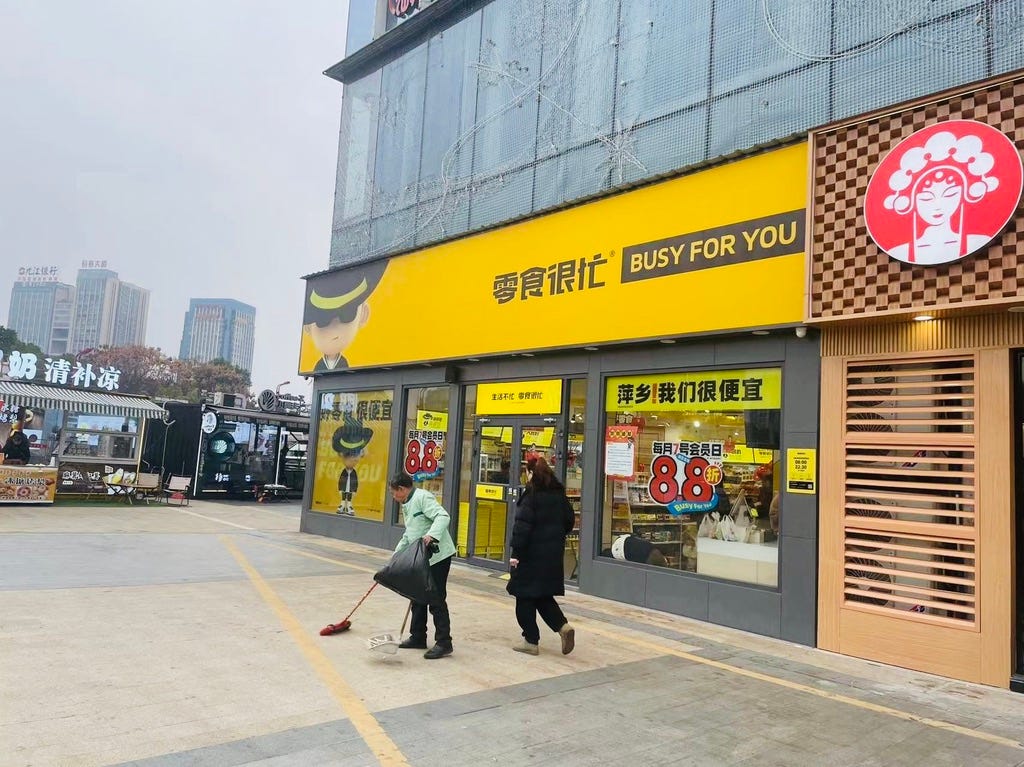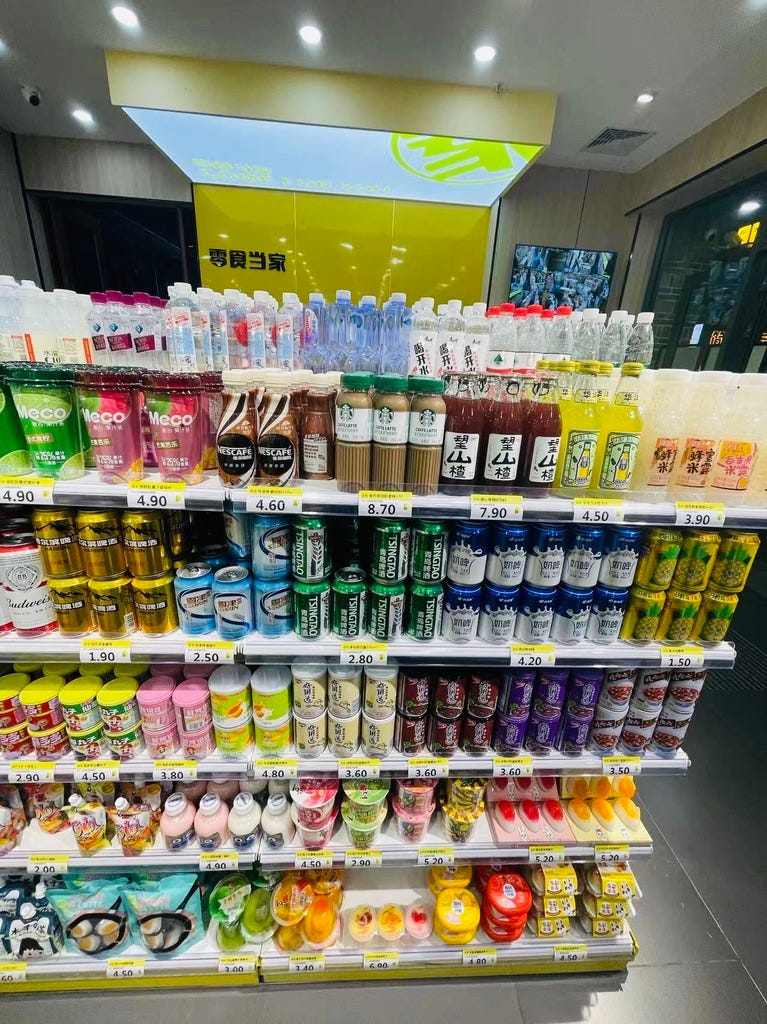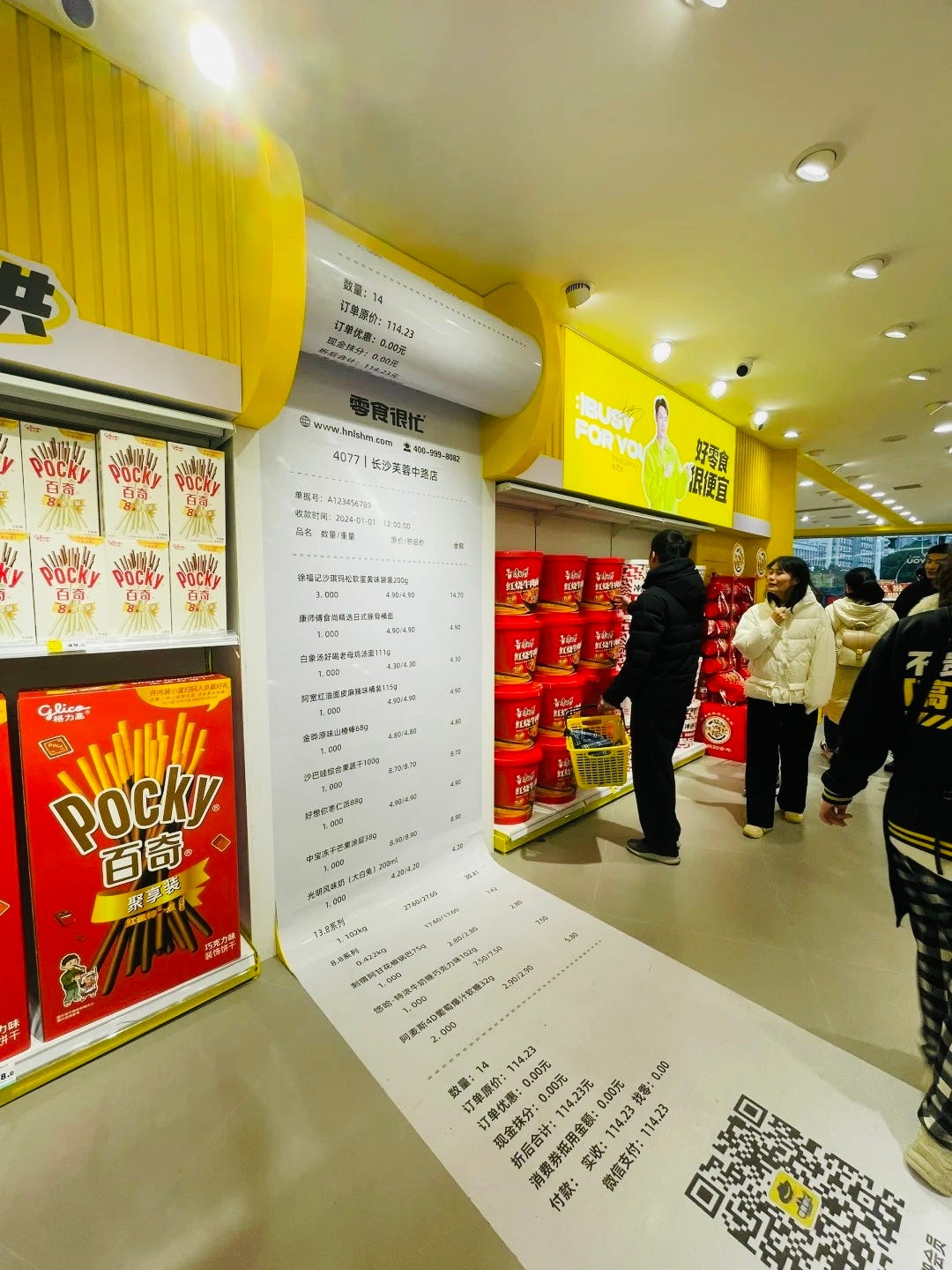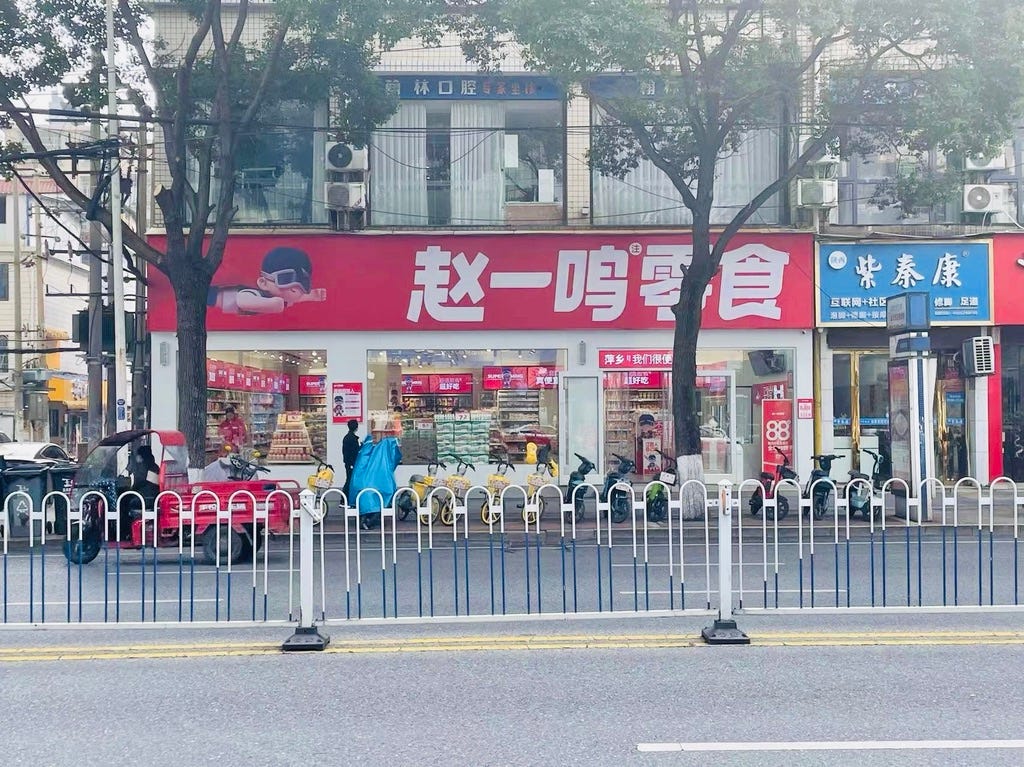Snack chain brand – Busy For You – expands like crazy in inland China
but they don’t care about Shanghai and Beijing

Have you ever shopped in a realm full of snacks?
In China's inland regions, an uncommon retail brand specializing in snacks — Busy For You — has quietly popped up everywhere. Walking through cities across Hunan and Jiangxi Province, you'll find their stores just scattered throughout the avenues, much like Starbucks or 7-11 in mega cities.
The store design of Busy For You provides significant visual stimulation, akin to an unmissable billboard. Despite sometimes being overwhelming, their visual appeal tends to attract customers with a curious palette. Entering their yellow-themed store feels like stepping into a Disney park full of snacks. They carry a wide range of affordable products, including both domestic and international brands, and many private label products Their Changsha flagship store even offers mega-sized snack packages reminiscent of what you'd see in cartoons, catering to nostalgic childhood snack cravings.


The brand has been on a quiet mission to expand. According to Nikkei Asia, last year, Busy For You “acquired 88% of the shares in Super Ming,” another snack chain. This union increased the overall store count to over 6,500 across China — with Busy For You contributing 4,000 and Super Ming 2,500 — placing the Busy For You group at the forefront of the snack retail market. They aim to expand to 10,000 stores within the next two years, signaling their intention to dominate the market.

It may be confusing — How can the brick-and mortar snack business be booming in inland China, when the economy in China is so sluggish? Is it because of the downgrade in consumption?
When measured by price, it might be correct. However, when considering quality of life, my answer is a definitive NO.
Platforms like Douyin and Xiaohongshu have equalized the market and consumer information across big and small cities. They promote consumer values that regard purchasing as a primary path to happiness. Consumers aspire to live up to, or surpass, the lifestyle standards of larger cities. Affordable "Busy For You" outlets, just like addictive caffeine and sweet milk tea, provide fleeting moments of happiness. This is especially true in undeveloped inland areas with poor logistics, where immediate and next-day deliveries are not a common luxury.
The trend of physical store expansion into lower-tier cities has also occurred in the coffee, milk tea, and fast food chain sectors. Clearly, in inland China, the supply of affordable quality products is insufficient. Physical snack chains like Busy For You, similar to Starbucks and McDonald's, are filling this gap.
But why did Shanghai and Beijing, the two richest cities in the country, disappear from their business map?
To address this, let's look at the cost structure of retail businesses.
Essentially, the rent and labor expenses of a physical retail business usually take up a large proportion of the cost. Success hinges on maximizing profitable sales and tightly managing rent and labor costs. Vertical snack chains like Busy For You don't own factories – which means - without effective management of rent and labor costs, profitability becomes difficult. This is why they're not prioritizing high-cost cities like Shanghai and Beijing.
From the perspective of demand, a considerable portion of the consumers, 70%, resides in third-tier cities or smaller, creating a large market. The per capita income might be lower than in major cities, but this vast consumer base can support any mass consumer business. That is to say, a business can become a national brand without having operations in Shanghai or Beijing.
Public information indicates that Busy For You currently has a profit margin of 2% to 3% (let's assume the data is not faked). While this isn't as high as brands with robust manufacturing chains, it holds up when compared to other grocery chains with a similar model, such as 7-Eleven, Don Quijote, and Walmart, which don't achieve a net margin exceeding 4%.
The current profit model appears satisfactory. It's likely they will pursue MiXue's expansion strategy: first establishing brand recognition in the lower-tier market, then expanding into Shanghai and Beijing. This approach could provide them with more leverage in rent negotiations.
Chain stores across China represent a new offline sales channel for snack brands to reach customers. Clearly, these channels offer potential business growth and insights into local user behavior for international snack and beverage brands, informing investment decisions.
Broadly, consumers in lower-tier cities strive for better quality of life in all aspects, not just food and beverages. This presents two key opportunities: identifying unmet needs and replacing outdated businesses. Both domestic and foreign brands can't afford to miss this.



Does anyone know where I could get these for wholesale? I would like to start selling them in the US if any body could give me information on how to order them in bulk